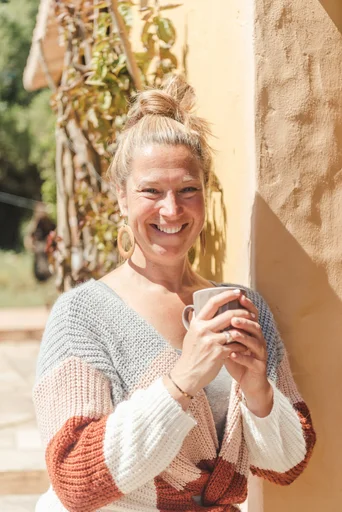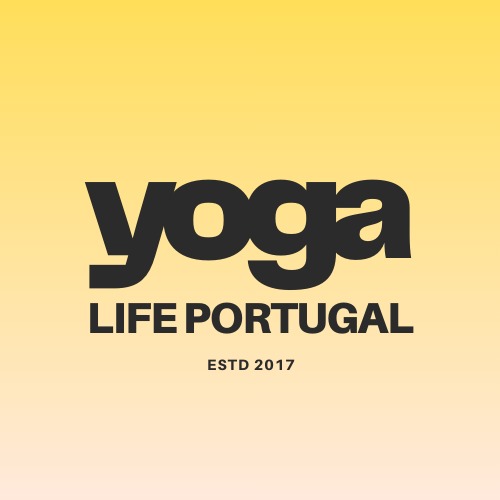Pose of the Week: Wheel Pose (Upward Bow)

Discovering the Wheel Pose (Upward Bow)
The Wheel Pose, also known as Upward Bow or Chakrasana, is a powerful backbend that offers a myriad of physical and mental benefits. This dynamic yoga posture involves bending the spine and forming an arch, creating a shape similar to a wheel. It is an energizing and invigorating pose that can counteract stress, anxiety, and depression. The practice of Wheel Pose has been shown to activate the sympathetic nervous system and the lymphatic system, improving hormone secretion within the body and enhancing overall health.
What is the Wheel Pose?
The Basics of Wheel Pose
The Wheel Pose is performed by lying on your back, bending your knees, placing your hands beside your head, and then lifting your entire body off the ground into a deep backbend. This posture stretches the spine, shoulders, chest, upper back, and thighs while strengthening the arms, wrists, spine, legs, and abdomen.
Upward Bow vs. Other Backbends
Compared to other backbends in yoga, such as Cobra Pose or Bridge Pose, Upward Bow stands out for its deep opening of the heart center. This makes it particularly beneficial for revitalizing the heart and improving blood flow to organs and tissues. Additionally, it enhances flexibility, strengthens the spine, and promotes overall physical and mental well-being.
Why Practice the Wheel Pose?
Physical Benefits
Scientific research findings have demonstrated that practicing Wheel Pose results in significant improvements in muscular strength among participants. Furthermore, this yoga posture offers benefits such as improved blood circulation to lower blood pressure and cholesterol levels while reducing inflammation in the body.
Mental and Emotional Benefits
In addition to its physical advantages, Upward Bow has been found to be therapeutic for mental well-being. It tends to be energizing and invigorating while countering stress, anxiety, and depression. The activation of the sympathetic nervous system during this pose further improves overall health by regulating hormone secretion within the body.
Preparing for the Wheel Pose
Before attempting the Wheel Pose or Upward Bow, it's crucial to prepare your body adequately. This involves engaging in essential warm-up exercises and aligning your mind and body to ensure a safe and fulfilling practice.
Essential Warm-Up Exercises
Shoulder Openers
To prepare for the deep backbend of the Wheel Pose, it's essential to focus on opening up the shoulders. Lying back on a block in Supported Fish Pose (Matsyasana) can be highly effective in releasing tension and increasing flexibility in the shoulder joints. Additionally, using a strap between your hands and gently moving your arms up and back, also known as shoulder flossing, can further enhance shoulder mobility, making it easier to achieve the full expression of the pose.
Hip Flexor Stretches
In addition to shoulder openers, hip flexor stretches are vital for preparing the body for Wheel Pose. Practicing poses that target the hip flexors, such as Half Wheel, can help improve flexibility in this area. These stretches not only aid in achieving proper alignment during the pose but also reduce the risk of strain or injury.
Aligning Your Mind and Body
Setting Intentions
Preparing for any yoga pose involves setting intentions to guide your practice. When gearing up for Wheel Pose, consider focusing on intentions related to courage, openness, and self-expression. These intentions can help you mentally prepare for the physical demands of the pose while fostering a sense of emotional strength and resilience.
Breathing Techniques
As you approach Upward Bow, pay close attention to your breath. Deep diaphragmatic breathing can help calm any apprehension or excitement that may arise when practicing this emotionally confronting pose. Engaging in mental rehearsal before attempting Wheel Pose allows you to analyze your own version of the posture while maintaining a steady breath rhythm.
The video demonstrates drills and explains anatomy details for practicing Wheel Pose, offering additional instructions for preparation. It's important to note that improving shoulder mobility is crucial for achieving greater range in Wheel Pose. Therefore, incorporating exercises that focus on stretching and strengthening the pectoralis muscles is essential.
For yogis working toward more advanced backbends like Wheel Pose, utilizing a yoga wheel can provide significant assistance. The yoga wheel offers support as you gradually build strength and flexibility necessary for achieving an optimal Wheel Pose.
Executing the Wheel Pose

Step-by-Step Guide to Wheel Pose
Now that you are adequately prepared for the Wheel Pose or Upward Bow, it's time to execute the posture with mindfulness and precision. Here is a step-by-step guide to help you achieve the full expression of this empowering backbend.
Starting Position
Begin by lying on your back with your knees bent and feet flat on the floor, hip-width apart.
Place your hands on the ground beside your head, fingers pointing towards your shoulders.
Press down through your palms and lift your shoulders off the mat, coming onto the crown of your head.
Ensure that your elbows are hugging in towards each other and are parallel.
Take a moment to ground through your feet and engage your leg muscles.
Lifting Into the Pose
As you inhale, press firmly into your hands and feet, lifting your entire body off the ground.
Extend through your arms and legs while maintaining engagement in your core muscles.
Keep pressing into the hands to lift the chest higher, creating a deep arch in the spine resembling a wheel shape.
Hold the pose for several breaths, focusing on lengthening through the spine and opening through the heart center.
Common Mistakes and How to Avoid Them
Alignment Tips
One common mistake when practicing Wheel Pose is allowing the elbows to splay outwards, which can lead to unnecessary strain on the shoulders and wrists. To avoid this, focus on drawing the elbows in towards each other as you lift into the pose, creating stability and support for your upper body.
Another alignment tip is to ensure that your knees track in line with your ankles as you lift into Upward Bow. This helps maintain proper alignment in the lower body while distributing weight evenly across both legs.
Adjustments for Beginners
For beginners working on Wheel Pose, it's essential to build strength gradually while also prioritizing safety and alignment. One helpful adjustment is to practice against a wall for added support as you work on lifting into the pose.
Additionally, using yoga blocks placed under your hands can provide extra height and support during initial attempts at Upward Bow, allowing you to focus on engaging specific muscle groups without compromising form or risking injury.
Remember that learning any new yoga posture takes time, patience, and consistent practice. Embrace each stage of progress along this journey toward mastering Wheel Pose with an open heart and a determined mind.
The feedback from Sara W., Scottsdale, AZ highlights how even partial participation in a Wheel class can lead to noticeable shifts in strength and body alignment over time. It emphasizes that progress is not solely measured by achieving full expressions of poses but also by experiencing growth within oneself throughout each practice session.
Benefits and Cautions of the Wheel Pose
Unlocking the Full Potential
Practicing Wheel Pose or Upward Bow offers a wide array of physical health benefits and psychological and emotional perks. It revitalizes the heart, improves blood flow to organs and tissues, lowers blood pressure, cholesterol, and inflammation, enhances flexibility, strengthens the spine, and promotes overall physical and mental well-being.
Physical Health Benefits
Research has shown that backbends like Wheel Pose increase elasticity and flexibility in the spine by lengthening and strengthening the vertebrae. This not only improves posture but also contributes to enhanced mobility and reduced risk of spinal injuries. Additionally, practicing this pose can lead to significant improvements in muscular strength over time. Incorporating less intense backbends such as Cobra Pose, Bow Pose, and Bridge Pose into your practice can help strengthen your back, arms, and shoulders while increasing flexibility—essential prerequisites for mastering Wheel Pose.
Furthermore, shoulder mobility is crucial for achieving a full expression of Wheel Pose. Therefore, it's essential to practice shoulder stretches and exercises to improve flexibility and prevent excessive tension in this area.
Psychological and Emotional Perks
In addition to its physical benefits, Upward Bow tends to be energizing and invigorating. It counteracts stress, anxiety, and depression by activating the sympathetic nervous system and the lymphatic system. This activation improves hormone secretion within the body further enhancing overall health.
When to Exercise Caution
Contraindications
While Wheel Pose offers numerous benefits, it's important to be mindful of contraindications that may make this pose unsuitable for certain individuals. Those with recent or chronic injuries to the wrists or shoulders should approach this pose with caution or avoid it altogether until fully recovered. Additionally, individuals with high or low blood pressure should consult with a healthcare professional before attempting this deep backbend.
Listening to Your Body
As with any yoga practice, it's crucial to listen to your body when practicing Wheel Pose. If you experience discomfort beyond normal stretching sensations or if you feel any sharp pain during the pose, gently release from it immediately. It's essential to honor your body's limitations while also challenging yourself within safe boundaries.
The video demonstrates various drills for practicing Wheel Pose effectively while emphasizing the importance of utilizing yoga props such as blocks or a yoga wheel for support during initial attempts at this challenging backbend.
By understanding both the potential benefits and cautions associated with Wheel Pose, practitioners can approach this empowering posture mindfully while prioritizing their safety and well-being throughout their yoga journey.
Reflecting on the Wheel Pose Journey
Personal Experiences and Insights
As I reflect on my journey with the Wheel Pose or Upward Bow, I can't help but acknowledge the challenges I've faced and the triumphs and transformations that have unfolded along the way. The physical demands of this pose, coupled with its emotionally charged nature, have made it a profound experience.
Challenges Faced
The shape of Wheel Pose is essentially the opposite of how many of us spend our days, making it a significant physical challenge. The deep backbend stimulates the breath, opens the chest and shoulders, improves spinal flexibility, and strengthens various muscle groups. However, achieving this posture has not been without its obstacles. Backbends are generally demanding on the body and can make us feel vulnerable in a literal sense. Overcoming these challenges required patience, perseverance, and a willingness to embrace discomfort as part of growth.
Triumphs and Transformations
When I finally found my way into Wheel Pose, it felt liberating, releasing, and even "heart-opening." The hard work invested in building strength in my muscles made me feel more confident and mentally resilient. This empowering posture revitalized my heart, improved blood flow throughout my body, lowered stress levels, and enhanced overall well-being. The sense of accomplishment from conquering this challenging backbend has translated into increased self-assurance both on and off the mat.
Encouraging Continuous Practice
Setting New Goals
Moving forward in my practice with Wheel Pose, I am setting new goals to deepen my backbend while maintaining mindfulness and alignment. By focusing on gradual progress rather than perfection, I aim to cultivate patience within myself as I continue to explore the full potential of this empowering posture.
Incorporating Wheel Pose into Daily Life
Beyond the physical practice on the yoga mat, I strive to incorporate elements of Wheel Pose into my daily life. Embracing courage, openness, self-expression, resilience, and emotional strength—qualities nurtured during this journey—has positively influenced various aspects of my life outside of yoga. Whether facing challenges at work or navigating personal relationships, the lessons learned from practicing Upward Bow continue to guide me toward growth and self-discovery.
The testimonials collected from practitioners resonate deeply with these personal experiences. They highlight how embracing vulnerability through challenging poses like Wheel Pose can lead to transformative shifts in both physical strength and mental fortitude.
In conclusion, reflecting on my journey with Wheel Pose has been an enlightening process that extends beyond physical accomplishments. It has taught me valuable lessons about resilience, perseverance, self-compassion, and personal growth—a journey worth embarking upon for anyone seeking holistic well-being.
Now let's move forward together by continuing to explore new possibilities within our yoga practice!
See Also
Discover Your Flow: Unleashing Power Yoga On and Off the Mat
Mastering Stability: Iyengar 101 for Handstand Perfection
Enhancing Your Practice: 4 Mudras for Deeper Meaning
Unlocking Potential: 13 Poses for Chair Yoga
Living with Integrity: Embracing Brahmacharya in Yoga Practice
We bring back the importance of initiation into womanhood by Roos-Veerle Krijnen & Ella-June Henrard
Welcome to the Women’s Initiation Retreat by Naked Truth Retreats, a transformative journey into the depths of your True Feminine Nature. This retreat, scheduled from 17th to 24th August 2024 in Portugal, invites you to remember the sacredness and wholeness of your being.
Roos-Veerle Krijnen & Ella-June Henrard



